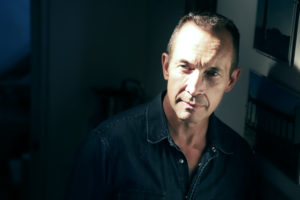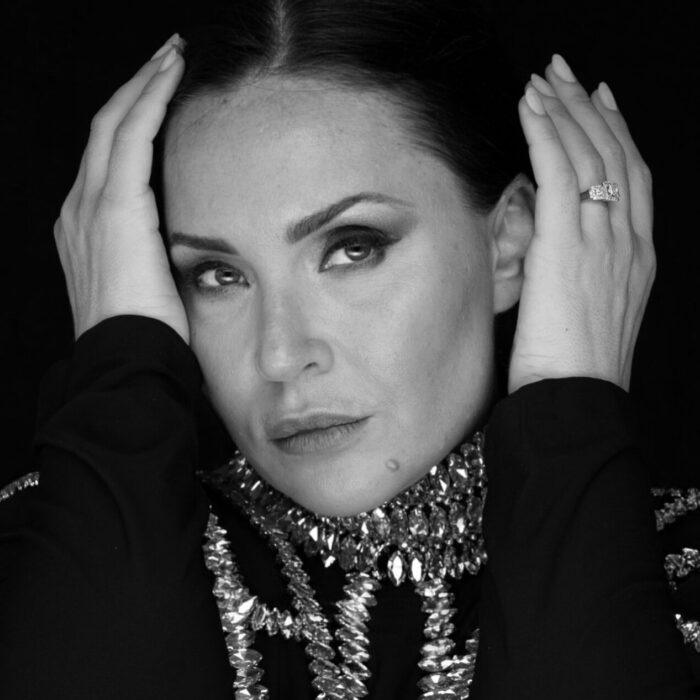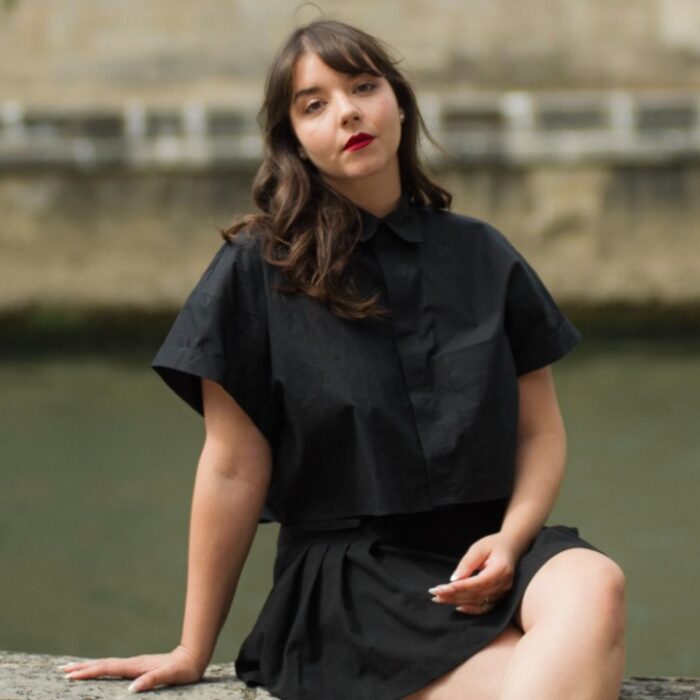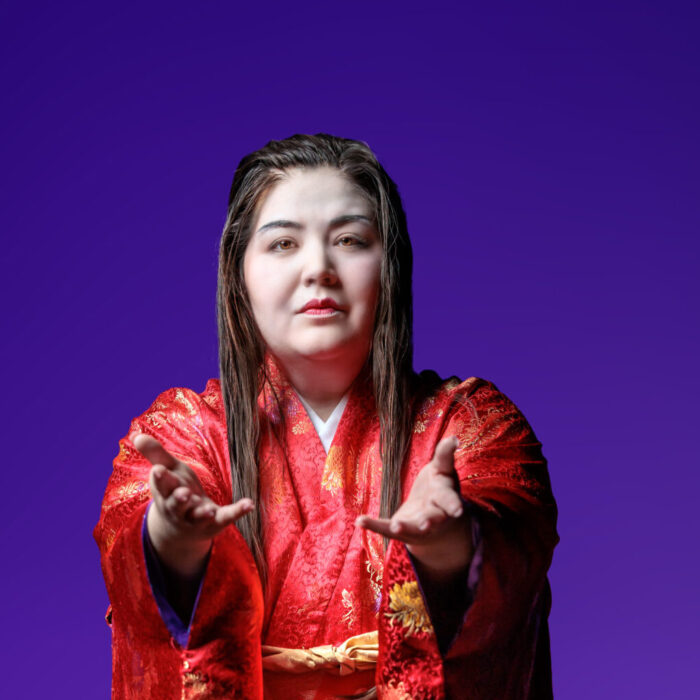
Opera in the Time of COVID: Jonathan Dove, Famed Composer of ‘Flight’
By David Salazar(Credit: Frances Marshall)
“Opera in the Times of COVID” is an interview series in collaboration with photographer Frances Marshall of Marshall Light Studio. We talk to notable figures from around the opera world to get their perspective on how they feel these challenging times may change opera’s present and future.
Since its world premiere in 1988, “Flight,” an opera composed by Jonathan Dove, has become one of the major standards of the modern repertory. The composer himself has created over 30 operatic works, amidst other major compositions. What makes him so prolific is his consistent and never-ending work ethic, which the composer revealed only increased during his time in lockdown.
In this interview, the composer not only expands on how he’s maintained focus in the midst of the crisis, but expounds on the several books he’s “devoured” during lockdown and how he feels about technology’s role in opera’s future.
OperaWire: What have you done during this time to keep yourself positive and productive?
Jonathan Dove: Lockdown isn’t so different from a composer’s normal life, but without the usual travel I’m certainly getting more written, and catching up a little with my ambitious composition schedule. It’s felt like a good time to be making things.
I’ve even written a couple of very short pieces specifically for lockdown projects. I take advantage of the exercise allowance to cycle along the river most days. And to make Sundays different, I’ve unearthed some unmade model kits that I was given years ago: I’ve assembled some miniature musicians and a Japanese diorama. It’s a bit of a return to childhood, but making things is definitely what makes me happiest!
OW: What do you feel will be the greatest impacts of COVID-19 on the opera world moving forward? What are some new developments that you feel are here to stay?
JD: You can write music in lockdown, but you can’t really perform it. Virtual choirs and orchestras have their place, but we are going to be so appreciative when orchestras and choruses and audiences can safely gather again. So one impact may be creating a huge hunger for live performance.
Unfortunately, at the moment that future time of safety feels frighteningly distant. Opera was in a precarious enough position without this new challenge. So I fear for companies that were already on the edge.
Streaming past productions is now a way for companies to stay connected with their audiences: now that the Wigmore Hall is planning to stream live performances from an empty hall, and something similar may happen with the Proms, it’s possible that some new live productions might be streamed in a similar way – but it’s hard to see how this could work economically.
OW: Speaking of streaming and social media, both have become more prevalent during this time. How have they impacted your time in quarantine?
JD: I generally feel more creative when I spend as little time on social media as possible! My recent experience of an Instagram Live interview included an awkward moment when my mind went blank trying to answer a perfectly simple question.
I don’t listen to other music a great deal when I’m in the middle of writing – which is most of the time! – so I haven’t taken much advantage of the huge array of streaming productions and performances currently on offer.
Some of my own operas have been captured brilliantly on film: I’d be happy for those to be seen more widely – preferably respecting the rights of all the performers involved! I’ve just spotted that Opera North’s ‘The Adventures of Pinocchio’ is on Marquee TV.
I recently sang through a new work to the world-famous baritone for whom it’s intended. I’m used to doing this live, where you can feel the listener’s response, and have a sense of how engaged they are. It was disconcerting doing this on Zoom, not being sure that my listener hadn’t wandered off somewhere while I was wrestling with the notes.
OW: What is an outcome of streaming during the quarantine that you didn’t expect?
JD: I wasn’t expecting to be asked by an opera company to devise music that could be performed by a virtual group of opera singers and conductors, as a prelude to streaming presentations. It has been a fun project, but it immediately demonstrated how much music-making depends on being able to hear and immediately respond to what everyone else is doing: we feel rhythms together, we harmonise, we sense each other’s breath. So much of music is a celebration of collectivity, of community. The music of isolation is a very different animal.
OW: What do you enjoy most about streaming’s increased importance during this time?
JD: I enjoyed the online premiere of Alex Woolf’s new chamber opera “Pandora’s Box” for The Opera Story: it was just about to open when lockdown was announced, and the quick-thinking producer managed to film the production just in time.
Of course, I would have preferred to experience it live, but it was wonderful to feel that tingling energy in the performers, who were just ready for the live audience they were suddenly denied. Fantastic that they managed to capture that. There was the feeling of an event, and it was unusual to be able to talk to so many of the cast and creative team about it over a Zoom drink afterwards.
OW: What are you most excited about doing once the quarantine officially comes to an end and we are allowed to resume a “normal” life?
JD: Being in rehearsal, trying out new pieces with singers and instrumentalists, opera- and theatre-going generally (including attending new productions of my operas).
OW: Who have been the people you have relied on most to help you through these challenging times?
JD: I’m lucky to be sharing isolation with a wonderful partner, who’s just taken up baking, with delicious results. My 93-year-old father and his partner are particularly at risk; I feel extremely fortunate in having such a good, collaborative relationship with my brother and sister: we’ve been able to share the caring responsibilities.
OW: Most people in quarantine are actively engaging with the arts via either music, TV, film, reading, literature. Etc. What have you been watching or reading during this time?
JD: I haven’t been able to concentrate on reading as much as I’d have liked. I started a few books, including :A Journal of the Plague Year,” without getting very far; but I devoured David Lan’s wonderful memoir “As If By Chance” with enormous pleasure. David wrote the libretto for “Tobias and the Angel,” and ran the Young Vic for many years. I couldn’t wait for the new hardback to arrive, and read nearly all of it on Kindle by the time it got here.
I’ve also read more of Daniel Snowman’s “The Gilded Stage – A social history of opera,” which is full of revelations, at least to me. It’s fascinating to read about the fragility of our art-form in its beginnings. I’m haunted and humbled by the thought that Monteverdi only heard Orfeo performed twice before it vanished for 300 years.
Categories
Interviews

